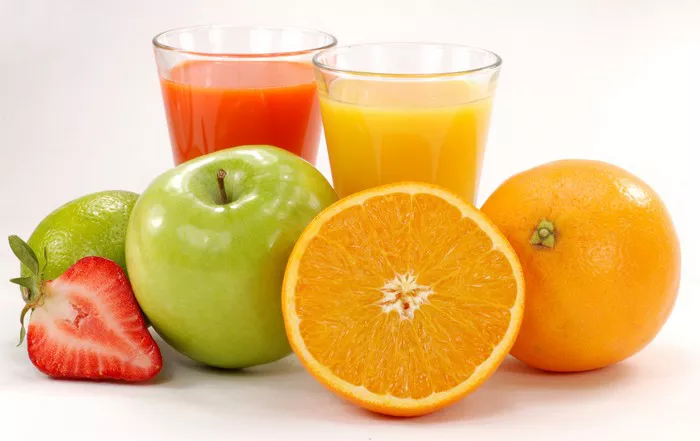High blood pressure, or hypertension, is a prevalent health concern affecting millions of people worldwide. While many focus on reducing blood pressure, some individuals may need to increase their blood pressure to achieve a healthy balance. Incorporating certain juices into your diet can be a natural and effective way to support healthy blood pressure levels. In this article, we will explore the juices that are beneficial for increasing blood pressure and how they can be integrated into a balanced and nourishing diet.
Understanding Blood Pressure and Hypotension
Blood pressure refers to the force of blood against the walls of the arteries as the heart pumps it through the body. It is measured in two numbers: systolic pressure (the pressure when the heart contracts) and diastolic pressure (the pressure when the heart is at rest between beats). A normal blood pressure reading is generally around 120/80 mmHg.
Low blood pressure, known as hypotension, occurs when the blood pressure falls below normal levels. While low blood pressure is generally considered beneficial for heart health, excessively low blood pressure can lead to symptoms such as dizziness, fainting, and fatigue. In severe cases, it may require medical attention.
When is Increasing Blood Pressure Necessary?
Increasing blood pressure may be necessary for individuals who experience chronic hypotension or those who are at risk of complications due to extremely low blood pressure. Common causes of low blood pressure include dehydration, certain medications, nutritional deficiencies, and underlying health conditions.
It’s essential to consult with a healthcare professional to determine the underlying cause of low blood pressure and the appropriate course of action. While incorporating specific juices can be supportive, it is essential to address the root cause of hypotension through a comprehensive approach, including lifestyle changes and medical guidance.
The Power of Juices to Support Healthy Blood Pressure
Juices can be a valuable addition to the diet for those seeking to increase blood pressure. Certain fruits and vegetables contain nutrients that are known to have a positive impact on blood pressure regulation. Incorporating these juices can provide a concentrated dose of essential vitamins and minerals that support overall cardiovascular health.
1. Beet Juice
Beet juice has gained popularity for its potential to support healthy blood pressure levels. Beets are rich in nitrates, which are converted to nitric oxide in the body. Nitric oxide helps relax and dilate blood vessels, promoting improved blood flow and potentially contributing to a modest increase in blood pressure. Additionally, beets are a good source of potassium, which is important for heart health.
To make beet juice, simply wash and peel fresh beets, then run them through a juicer. You can also blend them with water and strain the mixture for a more fiber-rich option. For added flavor, you may include a splash of lemon juice or mix beet juice with other fruits or vegetables.
2. Carrot Juice
Carrots are a fantastic source of vitamins, minerals, and antioxidants that support overall health, including cardiovascular health. Carrots are rich in potassium, which is essential for maintaining healthy blood pressure levels. The potassium in carrots helps counterbalance the effects of sodium in the body, which can contribute to elevated blood pressure.
To make carrot juice, wash and peel fresh carrots, then juice them using a juicer or blend them with water and strain the mixture. For added nutrition, you can combine carrot juice with other heart-healthy fruits and vegetables.
3. Pomegranate Juice
Pomegranate juice has been studied for its potential benefits in supporting cardiovascular health. It is rich in antioxidants, particularly polyphenols, which have been shown to have a positive effect on blood pressure levels. Pomegranate juice may also help improve cholesterol levels and reduce inflammation, further supporting heart health.
To enjoy pomegranate juice, you can extract the juice from fresh pomegranate seeds using a juicer or purchase 100% pure pomegranate juice from a reputable source. Avoid juices with added sugars or artificial ingredients.
4. Tomato Juice
Tomatoes are packed with lycopene, a potent antioxidant known for its heart-protective properties. Lycopene has been associated with improved blood pressure regulation and reduced risk of cardiovascular diseases. Tomato juice can also be a good source of potassium, which supports healthy blood pressure levels.
You can make tomato juice by juicing fresh tomatoes or blending them and straining the mixture. Consider adding a pinch of salt and a sprinkle of black pepper for extra flavor and to enhance the absorption of lycopene.
5. Orange Juice
Oranges are rich in vitamin C, potassium, and antioxidants, making them a heart-healthy fruit. The potassium in oranges helps maintain healthy blood pressure levels, while the antioxidants protect against oxidative stress and inflammation.
For fresh orange juice, juice fresh oranges using a citrus juicer or simply squeeze them by hand. Be cautious of store-bought orange juices that may contain added sugars and preservatives. Opt for 100% pure orange juice with no added sugars for maximum health benefits.
Incorporating Juices into a Balanced Diet
While these juices can be beneficial for supporting healthy blood pressure levels, it is important to consume them as part of a balanced and varied diet. Juices should not replace whole fruits and vegetables in the diet but rather complement them. Here are some tips for incorporating juices into your daily routine:
1. Drink in Moderation
While these juices offer health benefits, it is essential to consume them in moderation. Too much juice intake can lead to excessive calorie and sugar intake, which may negatively impact overall health.
2. Choose Fresh and Natural
Opt for fresh, homemade juices or 100% pure fruit and vegetable juices without added sugars or artificial ingredients. Commercially processed juices often contain added sugars and preservatives, which can negate the health benefits.
3. Balance with Whole Foods
Juices should be enjoyed alongside a diet rich in whole fruits, vegetables, whole grains, lean proteins, and healthy fats. This balanced approach ensures you receive a wide range of nutrients to support overall health.
4. Monitor Blood Pressure Levels
If you are seeking to increase your blood pressure, it’s crucial to monitor your levels regularly. Work with a healthcare professional to track your progress and make any necessary adjustments to your diet and lifestyle.
Conclusion
For individuals seeking to increase blood pressure levels, incorporating certain juices into the diet can be a beneficial strategy. Beet juice, carrot juice, pomegranate juice, tomato juice, and orange juice are among the juices that offer nutrients and antioxidants that support cardiovascular health. However, it is important to remember that juices should be consumed in moderation and should not replace whole fruits and vegetables in the diet. To address hypotension effectively, it is essential to adopt a comprehensive approach that includes healthy lifestyle habits, regular exercise, and medical guidance. By making informed choices and incorporating juices as part of a balanced diet, you can support your overall well-being and strive for healthy blood pressure levels.






















